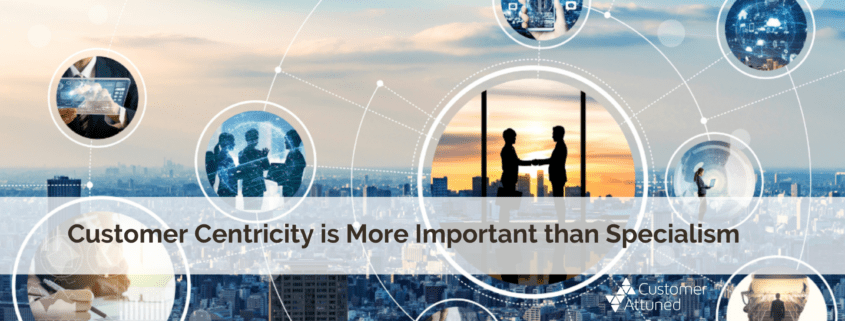Customer Centricity is More Important than Specialism
Customer Centricity is More Important than Specialism
Have you ever been part of a conversation where the comment is made that “most companies are run by bean counters these days”? I certainly have.
Actually, the figure of FTSE 100 companies headed by qualified accountants is more like 40%, but the perception that gives credence to this type of assertion is that ‘big’ business is impersonal, un-customer centric, and only interested in keeping shareholders happy and bonus pots overflowing.
As I look back over my experience consulting with companies around the world for nearly 25 years (and being in industry before that), I’d like to put forward an alternative perspective.
During this time, I have witnessed and become convinced of the seminal importance of customer centricity to leadership, culture, and sustainable business performance.
And some of the most inspirational, customer obsessed leaders I’ve encountered were Chartered Accountants!
I have also seen short-termism, product centricity, blame culture, empire building, infighting, toxic sales culture, internal competition, trust ruined, firefighting, customer-deafness – and dehumanised numbers focus that has lost sight of where those figures are sourced.
Give Bean Counters a Break!
You certainly don’t have to be an accountant to instil such poisonous behaviours and attitudes in an organisation!
We all bring our own strengths and specialisms (and weaknesses) into our roles. I originally trained as a Rolls-Royce Engineer, and I’m forever grateful for the quality-obsessed, logical, analytical, and decision-making skills that I learned.
Customer Centricity is a purpose
But customer centricity isn’t a skill. It’s a purpose by which we can focus and utilise our skills to collaboratively establish sustainable, trust-based, mutually beneficial and profitable customer relationships.
Your specialism does not determine your attitude towards your customers. Other things in the culture of the organisations where you have worked have had a much bigger bearing on that – either positively in leadership characteristics and behaviours that you wish to emulate or negatively in the things that you would change when in a position to do so.
So, let’s stop worrying about whether bean counters are in charge and start worrying about where customer value, trust and customer experience fit in your strategic aims! Let’s be champions for customer centricity in everything we do. These aren’t ‘soft’ aspirations – they’re pragmatic and rational aims that can be evaluated and measured just as well as widgets or dollars, as attested by Customer Value Management (CVM) and Dr Mark Hollyoake’s ground breaking work on B2B Trust.
Whatever your specialism, we can help you lead and foster customer centricity in your organisation.

Please get in touch to discuss your challenges and how our methods and approach can make the difference in your business.
- Customer Strategy in the B2B Membership Sector - May 27, 2025
- Build a B2B Customer Strategy - May 20, 2025
- Should you implement NPS in B2B? - January 22, 2025





